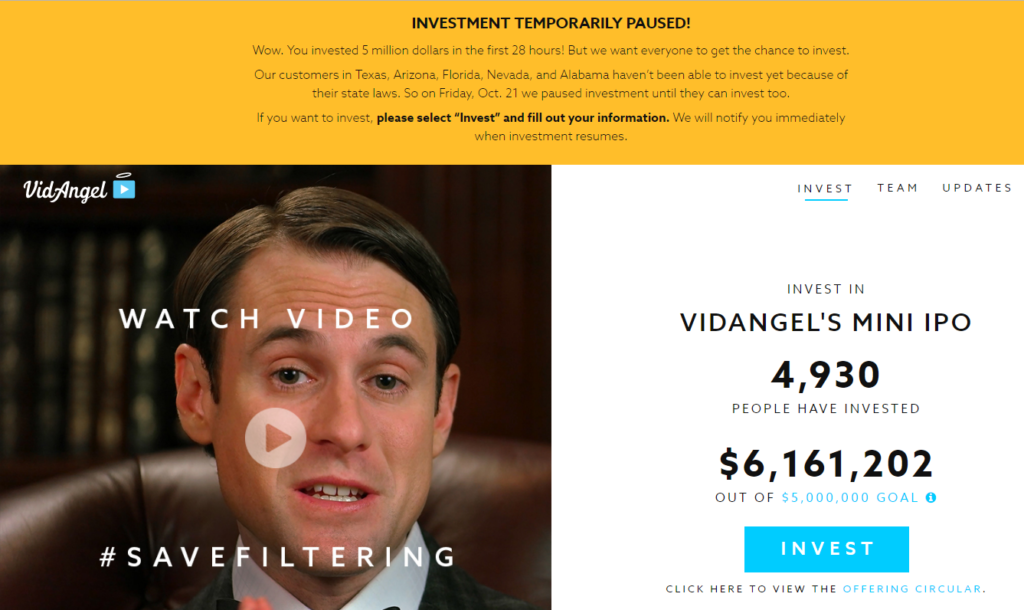We Have Been Forced Into a Conflict…
This is not journalism.
It’s a call to arms.
Not of weapons metal, or bullets hot with scorn, but of spitting fire – yes.
…for we are called to meet the challenge of a principle…
That as consumers of contemporary media we have a voice. A voice that should be enough to serve as gatekeepers to our own households. Just as it is the right of the artist to render the scenery and circumstance of their mind however they wish so it is the right of the audience to cover their eyes, ears, and, should the need arise, their heart.
This is as fundamental as the right to worship – and should be protected as such – is the right to respond to that worship.
The lazy are seldom convicted.
But those who are, either for reasons of religion, or of intellect are persuaded enough to see wisdom in the necessity to alter art itself. Should this right be terminated, then the right of an individual to exercise discretion is lost, and with it, an opportunity to redeem a story as a binary consequence of objection.
…Such a principle, stripped of all disguise, is surely the mere primitive doctrine that “might is right.”
A World Awake
But what am I talking about…really?
I’m talking about the threat of silence to the right of a business to offer filtering options to films.
vidangel.com
VidAngel’s business model goes a bit like this:
- They buy multiple copies of a movie and assigns each a unique barcode.
- They decrypt the content as is required to tag and filter content before streaming it.
- They then upload the content to their server.
- Using their website, users (i.e. you and I) are free to purchase a copy of one of their titles ($20).
- Upon said purchase, users are able to choose filters according to their own discretion, and have the filtered content streamed to them.
- When users are done watching the title, VidAngel features a ‘Sellback’ option that permits users to sell their movies back to VidAngel in exchange for a credit to their account for up to $19.
Once a title is sold, a hard-copy is stored in their vault and the title’s barcode is marked as ‘allocated’. If VidAngel runs out of hard-copies, then the next user that attempts to purchase it will receive a notification informing them that the title is not currently available.
Barcodes are freed only when a user opts to sell their copy back to VidAngel.

Photo: Michel – (CC BY-SA 2.0)
So Who Has the Conflict?
Disney, Lucasfilm, Twentieth Century Fox, and Warner Bros (‘Hollywood’, collectively).
That’s all.
Let’s take a look at the VidAngel business model and see where their gripes are (in red):
- They buy multiple copies of a movie and assigns each a unique barcode.
Hollywood never authorized the copies used. - They decrypt the content as is required to tag and filter content before streaming it.
The software in question circumvents established technological measures that effectively controls access to a work protected by the Digital Millennium Copyright Act (DMCA). - They then upload the content to their server.
This infringes on established copyright laws by violating Hollywood’s exclusive right to create copies. - Using their website, users (i.e. you and I) are free to purchase a copy of one of their titles ($20).
Despite VidAngel’s claims that the user ‘owns’ the title, VidAngel retains control until the hard copy is requested, a violation of copyright laws. - Upon said purchase, users are able to choose filters according to their own discretion, and have the filtered content streamed to them.
Streaming performances ‘to the public’ is a violation of the exclusive right to publicly perform their work. - When users are done watching the title, VidAngel features a ‘Sellback’ option that permits users to sell their movies back to VidAngel in exchange for a credit to their account for up to $19.
The number of people that take advantage of requesting a hard copy is insignificant, and the net effect is that VidAngel ultimately creates a low-cost on-demand streaming service (which is harmful for Hollywood’s revenue).
So yes, Hollywood has conflicts. Lots of them.
“Staying calm and firm and united in this time of trial…”
But VidAngel isn’t sweating (okay…maybe they’re sweating a little). They have counter-arguments to each of Hollywood’s assertions and with a defense made ready by some fairly prestigious legal-firepower of their own.
Initially, their legal counsel consisted of Baker Marquart, an agency that recently obtained a landmark copyright ruling regarding FilmOn against ABC (a division of Disney) and Fox.
They were soon joined by David Quinto, a top-tier lawyer who represented the Oscars for 27 years, has represented Samsung, Lockheed Martin, Home Depot, Mattel, and has co-authored a textbook on trade secret litigation (Trade Secrets: Law and Practice, 4th edition). David resigned from Quinn Emanuel Urquhart & Sullivan LLP and Davis Wright Tremaine LLP (read: prestigious Hollywood Law Firm) to represent VidAngel.
Returning Fire
So what are the counter-claims? I’ve taken out the business model stuff for clarity, but this is basically what it boils down to (in blue):
Annnddd…I put a disclaimer in at the bottom!
- Hollywood never authorized the copies used.
By federal law, Hollywood doesn’t have to so as long as the copies are lawfully purchased. - The software in question circumvents established technological measures that effectively controls access to a work protected by the Digital Millennium Copyright Act (DMCA).
By the Family Movie Act of 2005, filtering is legal. Decryption is a necessary step towards that end. - This infringes on established copyright laws by violating Hollywood’s exclusive right to create copies.
Because VidAngel is sourcing from lawfully purchased copies for the express purpose of a user watching the filtered content in their home, there is no copyright violation. Further, VidAngel makes only ‘intermediate’ copies that do not infringe as a matter of law. - Despite VidAngel’s claims that the user ‘owns’ the title, VidAngel retains control until the hard copy is requested, a violation of copyright laws.
Because VidAngel gives control over a particular copy (per unique barcode) to a user, including the option to have it mailed to them, there is no copyright violation.
- Streaming performances ‘to the public’ is a violation of the exclusive right to publicly perform their work.
This is false. Performances are filtered and streamed to a singular user account over a private and secure connection (https). The Family Movie Act of 2005 expressly authorizes third parties (i.e. VidAngel) to filter and then transmit the content to owners of the hard copies as filtered to their individual specifications. - The number of people that take advantage of requesting a hard copy is insignificant, and the net effect is that VidAngel ultimately creates a low-cost on-demand streaming service (which is harmful for Hollywood’s revenue).
When letters were sent informing Hollywood of VidAngel’s mode of operation, Hollywood waited eleven months before making their reply. It makes it difficult to believe, therefore, that any irreparable harm is being done.
Believe me when I say there’s more where this came from 🙂
The short of it is that there’s a lot of back-and-forth going on like VidAngel suing Hollywood for violating antitrust laws.
Didn’t read that link huh?
Still want to know what it said?
Okay…
VidAngel offered to pay Hollywood. Hollywood said ‘no thanks’, but VidAngel paid them anyways. Lawsuits ensued (no pun intended).
In fact, they’ve tried to pay them multiple times.
Ghosts of Payments Past
Specifically…
- They teamed up with Google to filter their licensed Google Play movies, but Hollywood told Google no.
- They tried to license directly and the studios said no, even though they had the money.
- They tried to buy discs directly and Hollywood said no.
- They made a product that let you filter movies already purchased on YouTube. Hollywood shut it down.
VidAngel is taking incredible measures to stay legal.
Why? Because they’re standing on solid law:
Enter the Family Movie Act of 2005 (scroll down to section 11) which states that a member of a private household can make imperceptible changes to limited portions of audio or video content transmitted to that household for private viewing provided that:
- The sourced copy is authorized.
- A computer program (or other technology) makes the changes, and that that program and/or technology is specifically designed to do so.
- No fixed copy of the altered version of the motion picture is created.
Check.
Check.
And Check.
VidAngel opened an IPO to give viewers a chance to invest. It raised over 5 million in the first 28 hours.
The Call to Arms
This is more than a battle over an interpretation of the law – it’s a battle for the right of a person to consume content how they want.
So here’s what you can do:
- Keep using VidAngel and sharing it with your friends.
- Go to SaveFiltering.com and sign the petition to help protect VidAngel. Every voice matters.
- Share this post.
Respond: What do you think? Is VidAngel as righteous as they (and maybe this article) makes them out to be? Or do you think their halo is slipping? Let me know in the comments!
Stuff You Don’t Have to Read but You Can if You Wanna
Quotes used in opening paragraphs, and offset as paragraph title beginning “Staying calm, and firm, and united…” are from King George IV, in The King’s Speech.
DISCLAIMER: These words are those of Avery White, and Third Person Creative. They are in no way represented of VidAngel’s official legal defense, or Hollywood’s allegations, but exist as my best interpretation of their counterclaim per their blog posts, personal evaluation of the document ‘VIDANGEL, INC.’S ANSWER AND AFFIRMATIVE DEFENSES TO COMPLAINT; AND COUNTER-COMPLAINT [DEMAND FOR JURY TRIAL’, and my personal evaluation of the injunction “PLAINTIFFS’ NOTICE OF MOTION AND MOTION FOR PRELIMINARY INJUNCTION; MEMORANDUM OF POINTS AND AUTHORITIES IN SUPPORT THEREOF’.
TL;DR: This is me. All me. This isn’t from the VidAngel legal team, or from Hollywood – this is Avery doing his best to make sense of over 100 pages of legal-speak, the DMCA, and the Family Movie Act of 2005.
SOURCES:
To help you make up your own mind here’s a list of links that might help (most of which were the sources for this post):
The laws (legal stuff):
DMCA (Title 17, Chapter 12, Section 1201)
Family Entertainment and Copyright Act of 2005 (aka Family Movie Act of 2005)
Family Movie Act as it’s written under Copyright Law; Title 17, Code 110(11)
Family Movie Act as it’s written under Trademark Law; Title 15, Code 1114(3)
Hollywood’s Complaint for Copyright Infringement…
VidAngel’s Answer to Affirmative Defenses…
The injunction (movement to shut them down until the trial concludes):
A few articles against VidAngel:
The Hollywood Reporter
FOX13 Salt Lake City: Utah-based VidAngel responds to lawsuit…
Forbes, Hollywood v. VidAngel: Fifty Shades of Filters
A few in favor of VidAngel:
Los Angeles Times: Cleaned-up films for $1? Movie-filtering…
Christian Examiner: VidAngel fights back, countersues…
Savefiltering.com






